 Petzlover
Petzlover Small Munsterlander is originated from Germany but Tenterfield Terrier is originated from Australia. Small Munsterlander may grow 25 cm / 10 inches higher than Tenterfield Terrier. Both Small Munsterlander and Tenterfield Terrier are having almost same weight. Both Small Munsterlander and Tenterfield Terrier has same life span. Both Small Munsterlander and Tenterfield Terrier has same litter size. Both Small Munsterlander and Tenterfield Terrier requires Low Maintenance.
Small Munsterlander is originated from Germany but Tenterfield Terrier is originated from Australia. Small Munsterlander may grow 25 cm / 10 inches higher than Tenterfield Terrier. Both Small Munsterlander and Tenterfield Terrier are having almost same weight. Both Small Munsterlander and Tenterfield Terrier has same life span. Both Small Munsterlander and Tenterfield Terrier has same litter size. Both Small Munsterlander and Tenterfield Terrier requires Low Maintenance.
 Known also as the Kleiner Munsterlander or just plain Munster, the Small Munsterlander comes from the Munster region of Germany and is a beautiful hunting dog.
Known also as the Kleiner Munsterlander or just plain Munster, the Small Munsterlander comes from the Munster region of Germany and is a beautiful hunting dog.
The dog is recognized by the Fédération Cynologique Internationale as well as other kennel clubs. It is believed that the Small Münsterländer is an ancient breed, more than 500 years old.
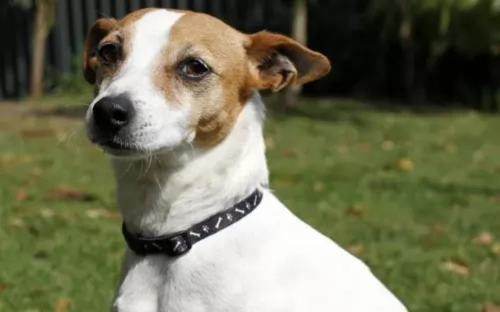 The ancestors of the Tenterfield Terrier came to Australia with the British and from them came this Australian breed. The English terriers were bred to be ratters on the ships to Australia. Today’s breed is a hardy, strong, athletic and agile dog. These first dogs were miniature Fox Terriers, bred for ratting. The miniature Fox Terrier was an established breed in the late 19th century in Australia with families and was know as a Mini Foxie. The breed became a steady presence in homes by the 1920’s.
The ancestors of the Tenterfield Terrier came to Australia with the British and from them came this Australian breed. The English terriers were bred to be ratters on the ships to Australia. Today’s breed is a hardy, strong, athletic and agile dog. These first dogs were miniature Fox Terriers, bred for ratting. The miniature Fox Terrier was an established breed in the late 19th century in Australia with families and was know as a Mini Foxie. The breed became a steady presence in homes by the 1920’s.
The breed might not have been named after the area of Tenterfield as many have guessed. Instead they may have been named after a breeder. The owner of the Tenterfield saddlery was called Tenterfield Saddler and he owned several of the breed. In 1990, Don Burke, a television personality suggested the breed be named the Tenterfield Terrier.
The Miniature Fox Terrier Club of South Australia. Now there were several clubs in Australia and a lot of disagreement about exactly what type of dog a miniature fox terrier was. Some did not think the name was legitimate, but they wanted recognition from the Australian National Kennel Club (ANKC). So, they became the Tenterfield Terrier Club of Australia in 1993. They were recognized by 2002.
Today the breed standard for the Tenterfield Terrier is different from the one for the Miniature Fox Terrier. They are now entirely separate breeds. In addition to the ANKC, the breed is recognized by the New Zealand Kennel Club but not by the AKC. It is also recognized by the American Pet Registry, Inc, the American Canine Registry and the Dog Registry of America, Inc.
 Standing at between 52–56cm in height and weighing between 17–26 kg, this dog is thought to be medium sized, muscled and athletic.
Standing at between 52–56cm in height and weighing between 17–26 kg, this dog is thought to be medium sized, muscled and athletic.
Looking like a large Spaniel he also has feathering around the legs and the tail. The coat is medium length and silky and tends to be slightly wavy. The coat is essentially white with large brown patches as well as some ticking.
Small Münsterländers are very intelligent dogs and they won’t have any trouble being trained and socialized. The Small Munsterlander is a natural born hunter and he is in his element when he is outdoors.
For this particular dog, it would be a shame to get a pet like this if you’re a couch potato. It is why this dog is better suited to living in the countryside as opposed to the city. He needs lots of exciting outdoor activities - hikes, walks, ball games, running and he loves swimming.
He is a loving, social dog and just wants to be 100% part of his human family and will adapt well to life with children in the home and with other pets.
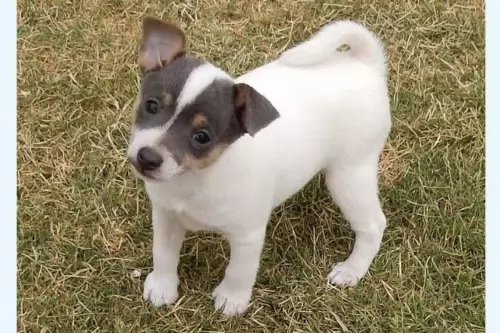 The Tenterfield Terrier is square and compact. He has a head shaped like a wedge and unusual in the terrier group. They have pricked ears and are predominantly white mixed with tan or black. They could also be tri-colored in black/tan and white or tan/liver and white. They have naturally occurring bob tails or docked tails. The nose is usually black unless the dog is liver colored, they have liver noses. The jaws are strong, and lips are tight with a strong neck.
The Tenterfield Terrier is square and compact. He has a head shaped like a wedge and unusual in the terrier group. They have pricked ears and are predominantly white mixed with tan or black. They could also be tri-colored in black/tan and white or tan/liver and white. They have naturally occurring bob tails or docked tails. The nose is usually black unless the dog is liver colored, they have liver noses. The jaws are strong, and lips are tight with a strong neck.
 The Small Munsterlander is such a pretty looking dog with his silky hair. He isn’t only about good looks either and he is intelligent and alert and will learn easily.
The Small Munsterlander is such a pretty looking dog with his silky hair. He isn’t only about good looks either and he is intelligent and alert and will learn easily.
He is a well balanced dog and will make a great pet and companion. He is social, friendly, loving and loyal and makes a great playmate for children.
He has always been a hunting dog and likes to be busy with games and work. Go on a hike and he will love to join you, sniffing along woodland paths and chasing birds. He is in his element when outdoors.
When you bring this beautiful dog into your home, you’re guaranteed to have an ideal pet and companion for the entire family.
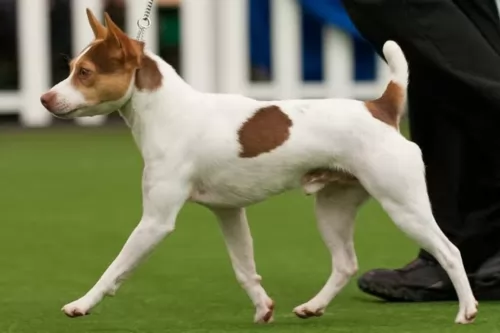 3.Adaptability – they need space even though they are small. They need a lot of exercise. They can adapt if they get another exercise. They can live in apartments and can play indoors as well as out.
3.Adaptability – they need space even though they are small. They need a lot of exercise. They can adapt if they get another exercise. They can live in apartments and can play indoors as well as out.
4.Learning ability – They are extremely intelligent, but they can be stubborn like all terriers.
 There are many clubs and breeders who have a strong commitment to the health of the breed, and this is a healthy, robust dog breed.
There are many clubs and breeders who have a strong commitment to the health of the breed, and this is a healthy, robust dog breed.
The Small Munsterlander can succumb to one of the many common dog illnesses there are. These can be ear infections, dental problems, cancer, diabetes, hip dysplasia, obesity, bloat and many others.
There are so many things that can cause skin problems with your dog, and while it doesn’t sound particularly serious, it can drive your pet crazy as he tries to bite and scratch the itchy parts on his skin.
These nightmarish skin problems are one of the most common reasons pet owners seek veterinary assistance.
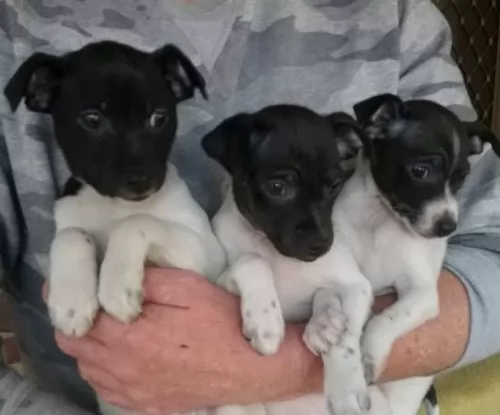 They are small in stature and because of their face they seem to have dental issues. The breed does not have a lot of health issues but deals with the same issues as many small terriers. Not all members of the breed are susceptible to these, but some are just like the Australian Terrier.
They are small in stature and because of their face they seem to have dental issues. The breed does not have a lot of health issues but deals with the same issues as many small terriers. Not all members of the breed are susceptible to these, but some are just like the Australian Terrier.
 ⠂ Give your Small Munsterlander the best chance to be healthy and happy by being giving him the best dog food there is.
⠂ Give your Small Munsterlander the best chance to be healthy and happy by being giving him the best dog food there is.
Commercially manufactured dog foods can be a good choice as they’re convenient, and some of the best ones have a good balance of vitamins and minerals in them. Avoid the ones that are packed full of useless ingredients such as toxins and colorants.
Break the monotony of the dry kibble by giving your dog some home-made food. It can be added into the dry kibble about twice a week as a treat. Boiled brown rice and chicken, sweet potatoes, carrots and spinach as well as some pasta can be a nutritious treat. It can be chopped up and added to the dry kibble in small portions.
To avoid skin infections, try to include some raw meat into his diet occasionally.
⠂ Reduce excess hair with shedding by brushing your dog twice a week. Check for fleas and ticks at the same time.
⠂ Just like you, your dog needs a warm, dry, quiet place to sleep undisturbed.
⠂ Keep your garden free of dog poop so that your pet can enjoy a clean place to play and relax. Its hygienic too to pick up his feces regularly.
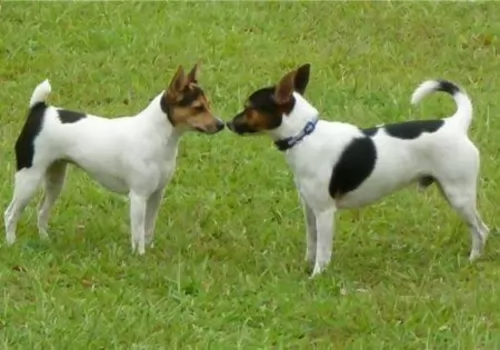 1.Feeding the puppy – Don’t overfeed but do feed high quality puppy food for small breeds and terriers.
1.Feeding the puppy – Don’t overfeed but do feed high quality puppy food for small breeds and terriers.
2.Feeding the adult – This is an active breed but don’t overfeed. Feed a high quality adult dog food for terriers or small breeds. Feed 2 times a day.
4. Games and Exercises – The breed has a high energy level and needs a lot of exercise. He is a terrier and loves to “go to ground”. Play activities that allow him to do that are best. He plays barn hunt, lure coursing and terrier specific competitions.